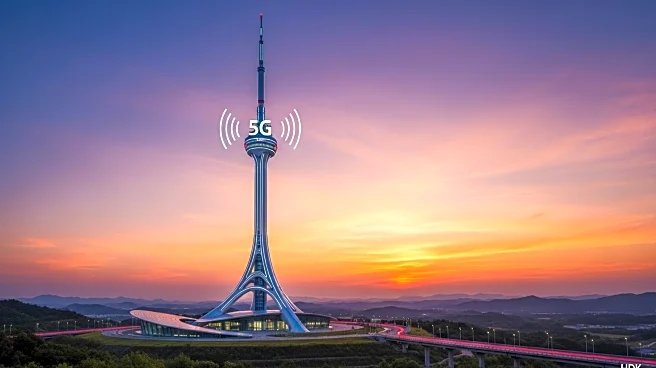What's Happening?
Ericsson has announced a multi-year partnership with Drei Austria to upgrade the telecommunications operator's core network. This initiative involves deploying Ericsson's cloud-native dual-mode 5G Core solution on the Ericsson Cloud Native Infrastructure Solution (CNIS). The upgrade will allow Drei Austria to operate both 4G and 5G networks on a unified platform, enhancing automation and AI-driven operations. This modernization is expected to improve service delivery efficiency, flexibility, and speed. The enhanced network will support various enterprise sectors, including manufacturing, healthcare, logistics, and smart cities, while also improving consumer experiences in streaming, gaming, and remote work.
Why It's Important?
The partnership between Ericsson and Drei Austria is significant as it represents a major step in Austria's digital transformation strategy. By modernizing its core network, Drei Austria aims to meet the increasing data demands and provide advanced 5G services. This move is expected to benefit both enterprises and consumers by enabling faster innovation and new service offerings. The integration of AI-driven operations and increased network automation will likely lead to improved service agility and new business opportunities, positioning Austria as a leader in digital infrastructure.
What's Next?
As Drei Austria continues to enhance its network capabilities, the focus will likely be on expanding the reach and capacity of its 5G services. The company may explore additional partnerships and technological advancements to further support its digital strategy. Stakeholders, including businesses and consumers, can anticipate improved connectivity and the introduction of innovative services that leverage the upgraded network infrastructure.
Beyond the Headlines
The modernization of Drei Austria's core network could have broader implications for the telecommunications industry in Europe. It may set a precedent for other operators to follow suit, accelerating the adoption of 5G technology across the continent. Additionally, the integration of AI and automation in network operations could lead to shifts in workforce requirements and the development of new skill sets within the industry.








